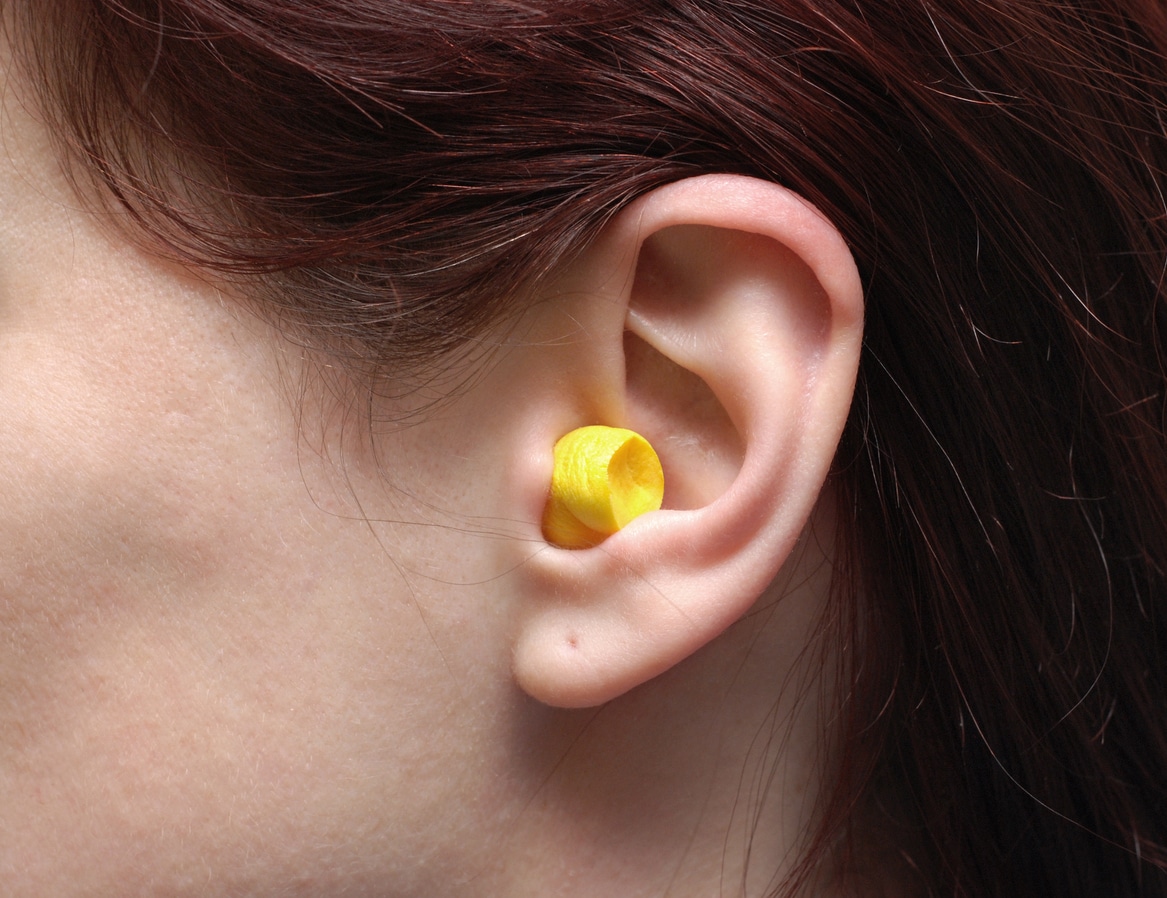A common cause of hearing loss is exposure to loud noises. This can happen over time or suddenly. In fact, the louder the sound, the less amount of time it takes to damage hearing.
Noises over 70 decibels (dB) may start to damage your hearing over time, and noises above 120 dB can damage your hearing immediately. For reference, a refrigerator hum is around 40 dB, and normal conversation falls around 60 dB. Decibels are measured by the intensity of the sound in a confined space, so if you perceive a sound to be loud, you may want to take steps to protect your hearing.
You can protect your hearing by taking breaks from intense sounds and stay away from places with sudden, loud noises. Or, you can wear hearing protection in the form of earplugs when continued exposure is necessary.
Times for Earplugs

Wearing earplugs when we perceive a sound to be loud may not be enough. We’re often exposed to everyday noises that we take for granted that could be damaging. Earplugs should be worn any time the sound levels consistently exceed 85 dB. There are frequent times in everyday life that are overlooked when earplugs should be worn that you may not have considered.
Consider wearing earplugs for the following activities:
- At work: Depending on your job, you may need to wear hearing protection. Factories, construction sites and other places around loud machinery are examples of workplaces where you should wear earplugs or other hearing protection nearly all the time.
- Concerts at LB Day Amphitheater or even listening to music: Most music at concert venues will be between 110 dB and 120 dB. Specific earplugs exist that allow you to still hear the music but prevent your hearing from being damaged.
- Doing yard work and using power tools: Lawnmowers and leaf blowers are loud enough to cause hearing loss and many often do yard work without protecting their ears. Lawnmowers and leaf blowers usually fall in the 80- 85 dB range. Many power tools are also in the 85 dB range.
- Other noisy areas: You may consider hearing protection if you live or work near a loud highway or busy construction site. City traffic often hits 85dB and subway trains can be as loud as 100 dB.
It’s also important to consider appropriate hearing protection for the activity. A hearing specialist can check your hearing and help you determine the right hearing protection for your preferred activities.
To learn more or to schedule a hearing test, contact Willamette ENT & Facial Plastic Surgery today.
“Dr. Strand is wonderful. In fact, all the staff are just the best. Personable, and to the point. You will be well cared for at Willamette ENT.”